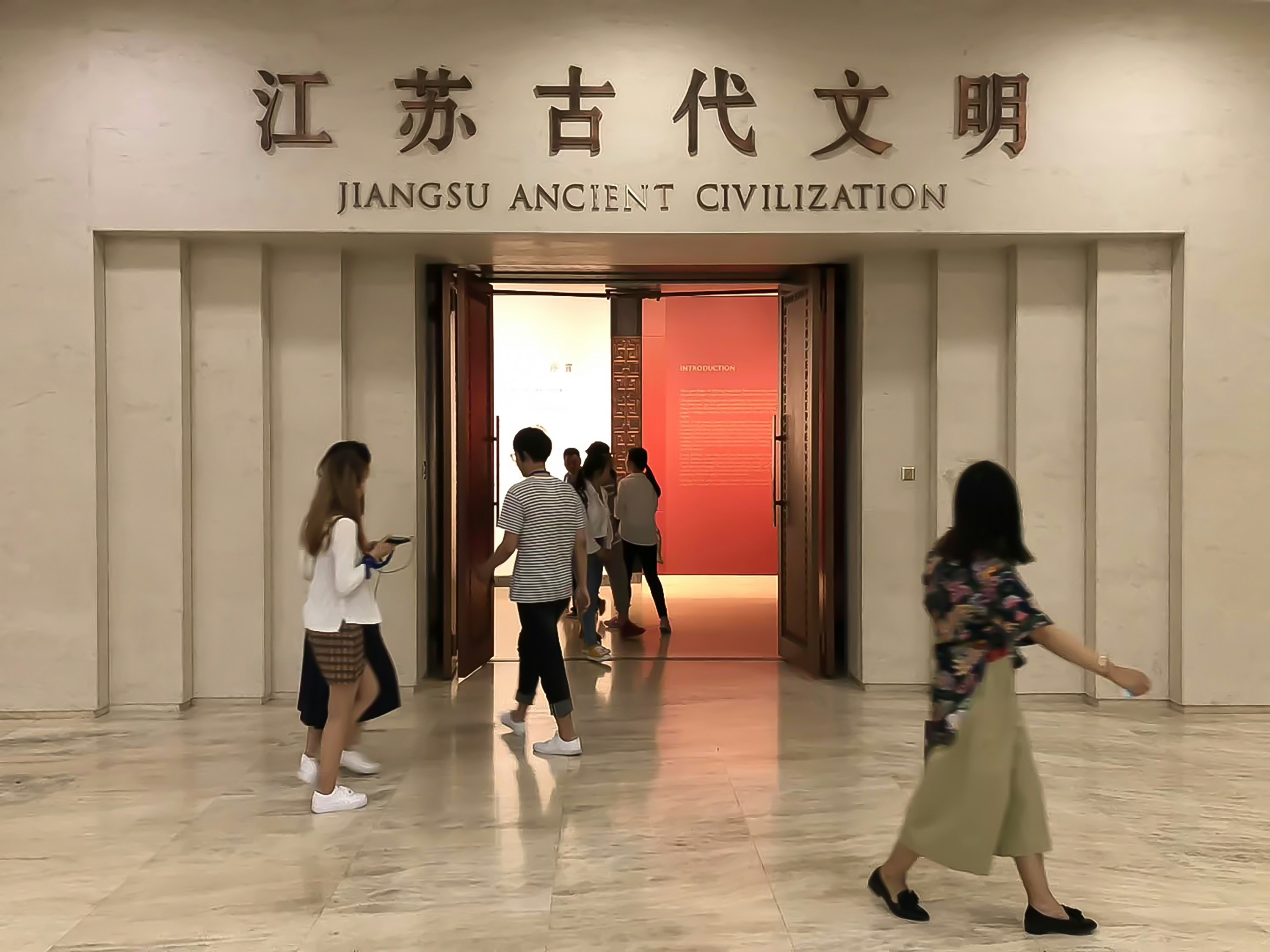As of 2023, artificial intelligence (AI) has become an integral part of various sectors, transforming how we interact with technology and reshaping industries such as healthcare, finance, and transportation. The rapid evolution of AI capabilities, driven by advancements in machine learning, natural language processing, and computer vision, has set the stage for an exciting future. With significant investments from both public and private sectors, innovative applications of AI are emerging, promising enhanced efficiency, accuracy, and productivity.
The pace of change has been tremendous, as organizations adapt to the growing importance of AI-driven solutions. For instance, in healthcare, AI systems are being employed for early disease detection, personalized treatment plans, and efficient management of patient data. Similarly, the finance sector is leveraging AI for improved risk assessment and fraud detection, while transportation is experiencing a shift towards autonomous vehicles. These examples illustrate the pivotal role AI advancements play across various fields.
Looking ahead to 2025 and beyond, it is crucial to consider the ramifications of these advancements. Industry leaders and policymakers are beginning to recognize the potential societal impact of AI, including ethical considerations and the necessity for regulations governing its use. As AI continues to evolve, the focus on creating transparent, accountable systems will become increasingly essential to ensure its benefits are maximized while minimizing risks.
In exploring the best features of AI in the upcoming years, it is vital to examine how current trends are paving the way for future innovations. The implications of these developments are vast, ranging from the automation of routine tasks to the creation of entirely new industries. With the ongoing advancements in AI technology, stakeholders must remain vigilant to harness its full potential responsibly and effectively.
Enhanced Natural Language Processing (NLP)
As we approach 2025, the field of natural language processing (NLP) is poised for remarkable advancements, primarily driven by the rapid development of artificial intelligence technologies. Enhanced language understanding will be at the forefront of these improvements. This refers to the ability of AI systems to interpret and grasp the nuances of human language more effectively, enabling them to comprehend context, idiomatic expressions, and even cultural subtleties. Such advancements will contribute significantly to creating more intuitive human-computer interactions, reshaping how users engage with technology.
Moreover, more accurate sentiment analysis will be another critical aspect of NLP evolution. By 2025, we can expect AI algorithms to analyze text data with a higher degree of precision, identifying underlying emotions and intentions within user communications. This capability will have profound implications for businesses looking to enhance customer service interactions. By understanding customer sentiments in real time, organizations can tailor their responses, fostering a more personalized and satisfactory experience. Consequently, NLP will play an integral role in building stronger relationships between businesses and their clientele.
Another exciting development is the anticipated enhancement of real-time translation capabilities. Advances in NLP will enable instant translations with improved accuracy and contextual relevance, bridging communication gaps between speakers of different languages. This could transform international business operations, travel experiences, and even social interactions, making global communication seamless. Consequently, enhanced NLP will not only facilitate efficient communication but also promote inclusivity by bringing people from diverse linguistic backgrounds closer together.
AI-Powered Personal Assistants
In recent years, artificial intelligence (AI) has experienced significant advancements, and the evolution of AI-powered personal assistants is one of the most prominent developments. By 2025 and beyond, these virtual aides are expected to become more intelligent and context-aware, fundamentally transforming the way users interact with technology in their daily lives. One of the key enhancements will be their ability to understand context more deeply, allowing them to respond more accurately to user inquiries and tasks.
AI personal assistants will not only execute simple commands but will also be capable of handling complex tasks with minimal input from users. For example, with the integration of advanced machine learning algorithms, they will be able to predict user needs and offer tailored recommendations. This proactive assistance will ensure that users receive relevant information and suggestions without needing to search for them actively. Such functionality will streamline everyday activities, from managing schedules to optimizing daily routines.
Furthermore, the seamless integration of AI personal assistants with various devices will play a crucial role in their effectiveness. Users can expect these assistants to synchronize across smart home devices, smartphones, and wearables, providing a cohesive and efficient experience. Imagine a scenario where your personal assistant can adjust your home’s lighting based on your mood, remind you of upcoming events, and even send messages or make calls without the need for manual input—all while constantly learning from your behavior to improve future interactions.
Overall, the next generation of AI-powered personal assistants promises to deliver a level of convenience and efficiency that will enhance personal productivity. As they evolve to become more intelligent and intuitive, these assistants will redefine how users manage their daily tasks, ultimately leading to a smoother integration of technology into everyday life. The journey towards creating these advanced AI companions is not only exciting but also pivotal in shaping the future of human-computer interaction.
Advancements in Autonomous Systems and Robotics
As we look towards 2025 and beyond, the field of autonomous systems and robotics is poised for significant advancement, driven largely by artificial intelligence (AI) innovations. The integration of AI into diverse sectors such as transportation, manufacturing, and healthcare is expected to yield considerable enhancements in efficiency, safety, and precision.
In the transportation sector, autonomous vehicles are anticipated to become more prevalent. With the incorporation of advanced AI algorithms, these vehicles will not only navigate more effectively in complex environments but will also optimize routes, reducing travel times and fuel consumption. Furthermore, AI-powered systems will enhance safety features by predicting and responding to potential hazards faster than human drivers. The result will be a notable decline in accident rates, contributing to safer roads and more efficient transportation networks.
Manufacturing will also witness a transformation with the rise of AI-driven robotics. Smart factories are expected to leverage autonomous robots for various tasks, such as assembly and quality control. These robots, equipped with machine learning capabilities, will continually improve their performance based on data analytics. Consequently, companies can anticipate increases in production efficiency and consistency while simultaneously reducing human error. Moreover, the implementation of collaborative robots, or cobots, will facilitate a synergy between human workers and machines, optimizing workflow and boosting productivity.
In the healthcare realm, the integration of AI in robotics has the potential to revolutionize patient care and operational efficiency. Autonomous robots may assist in surgeries, performing complex procedures with exceptional precision while minimizing recovery times. Additionally, AI-enhanced systems can streamline hospital operations, managing tasks such as inventory control and patient monitoring more effectively than traditional methods.
As these innovations unfold, autonomous systems and robotics will reshape the landscape of various industries, illustrating the profound impact of AI on our future. The synergy of these technologies holds promise for improved living standards, greater efficiency, and enhanced safety across multiple domains.
AI in Healthcare: Transforming Patient Care
By 2025, artificial intelligence (AI) is poised to revolutionize healthcare, transforming the way patient care is delivered through various innovative applications. One of the most significant advancements will be in the realm of predictive analytics, which utilizes vast amounts of data to forecast patient outcomes accurately. This capability enables healthcare providers to identify at-risk patients and implement preventive measures proactively, thus enhancing overall health outcomes.
Furthermore, personalized medicine is another area where AI will make substantial inroads. By analyzing genetic, environmental, and lifestyle factors, AI algorithms can help tailor treatments specific to individual patient needs. This custom approach to healthcare not only improves the efficacy of treatments but also minimizes adverse side effects, making it a significant leap forward in personalized patient care.
Additionally, AI-driven diagnostic tools are set to play a crucial role in the healthcare landscape of 2025 and beyond. These tools can analyze medical images, lab results, and other patient data with remarkable accuracy and speed, allowing for faster diagnoses. For instance, AI applications can assist radiologists by detecting anomalies in imaging studies that may be overlooked by human eyes, thus enabling timely intervention that can save lives.
Moreover, AI’s ability to streamline operational efficiencies within healthcare facilities should not be underestimated. Automating administrative tasks such as scheduling, billing, and patient documentation can significantly reduce the burden on healthcare professionals, allowing them to focus more on patient-centric care. This optimization of workflows is expected to result in shorter wait times for patients and enhance the overall quality of service within healthcare systems.
In conclusion, the integration of AI into healthcare by 2025 is anticipated to vastly improve patient care through predictive analytics, personalized medicine, and diagnostic tools, while also enhancing operational efficiencies within healthcare facilities. These advancements not only promise a higher quality of patient service but also a more effective healthcare system overall.
Ethics and Governance in AI Development
The rapid evolution of artificial intelligence (AI) necessitates a robust framework for ethics and governance, especially as we approach 2025. As AI systems increasingly integrate into everyday life, the call for ethical considerations and responsible practices has become more pronounced. This growing importance is reflected in several key areas, including bias reduction, data privacy, and transparency.
Addressing bias in AI models is paramount. Inaccurate representations can lead to significant consequences, affecting decision-making processes across diverse sectors. By employing techniques such as diverse data sampling and continual bias audits, organizations are working diligently to reduce inherent biases in their AI systems. This dedication to fairness is essential in building trust among users and mitigating the risk of discriminatory outcomes.
Data privacy is another critical concern. As AI increasingly relies on vast amounts of data, safeguarding personal information becomes essential. In 2025 and beyond, companies will need to prioritize user consent and data protection to comply with evolving regulations. Implementing ethical data management practices not only aligns with legal standards but also reinforces the principles of transparency and user respect.
Transparency in AI systems is closely related to ethics in governance. Stakeholders demand insight into how AI algorithms make decisions, particularly in high-stakes areas such as healthcare and finance. To address this demand, organizations are adopting explainable AI models that prioritize clear communication about their functionalities. By demystifying AI processes, organizations can foster accountability and discourage misuse.
In summary, as artificial intelligence continues to transform industries, it is increasingly imperative that ethics and governance are ingrained within the development processes. Through initiatives focused on bias reduction, safeguarding data privacy, and enhancing transparency, the future of AI can align more closely with societal and ethical expectations. This proactive approach will be critical to realizing the full potential of AI while maintaining public trust and safeguarding human rights.
AI and Augmented Reality (AR) Integration
The integration of artificial intelligence (AI) with augmented reality (AR) is poised to create innovative experiences across various sectors by 2025. As AI technologies evolve, they will enable AR systems to provide more contextual and interactive experiences, transforming the way users engage with digital content. The enhancements in AR through AI algorithms will enhance object recognition, spatial mapping, and user engagement, making it capable of understanding and reacting to user interactions in real-time.
In education, the application of AI-driven AR has the potential to create immersive learning environments. For instance, students can interact with 3D models of complex concepts, such as human anatomy or chemical structures, right within their physical classroom. AI can tailor these experiences to individual learning styles, pacing, and preferences, thus promoting a more personalized educational approach. Imagine a history lesson where students can walk through a virtual reconstruction of ancient civilizations, guided by AI that provides real-time insights and answers questions based on their interests.
Similarly, in training environments, industries such as healthcare and manufacturing can leverage the combination of AI and AR to simulate real-world scenarios. Healthcare professionals could practice surgical procedures in a safe environment with AI analyzing their techniques and providing feedback for improvement. In manufacturing, employee training can be augmented by AR overlays that guide workers through complex assembly processes while AI monitors performance and suggests optimizations.
In the realm of entertainment, AI-infused AR experiences are set to revolutionize gaming and interactive storytelling. Players can engage with virtual elements that respond to their decisions and actions, creating a richer, more customized experience. This dynamic interaction between user and environment will likely redefine gaming paradigms, making every session distinctly unique.
Moving forward, the synergy between AI and AR will not only enhance user experiences but will fundamentally change how we consume and interact with digital information, paving the way for advances we can hardly imagine today.
The Rise of Explainable AI
The advancement of artificial intelligence (AI) technologies has catalyzed a significant shift toward the necessity of explainable AI by 2025 and beyond. As organizations increasingly integrate AI into their operations, the demand for transparency in AI decision-making processes has become paramount. The complexity and often opaque nature of many machine learning algorithms pose challenges for end-users, regulators, and stakeholders. This complexity can lead to a crisis of trust, particularly in sectors where decisions can have profound implications for human lives, such as healthcare and finance.
Explainable AI seeks to address these challenges by providing clarity and rationale behind AI-driven decisions. By demystifying the processes and algorithms that result in specific outcomes, explainable AI not only helps users understand AI behavior but also fosters trust. When users can comprehend how an AI system arrives at a particular conclusion, they are more likely to support its integration into their workflows and decision-making frameworks. This trust is essential, especially when algorithms are used to inform medical diagnoses or assess credit risk in financial assessments, both of which require a high level of accountability.
Furthermore, as regulations around data privacy and ethical AI development tighten, the implementation of explainable AI becomes even more critical. Compliance with these regulations necessitates a system that can not only justify its decisions but also provide insights into potential biases and errors in the data or algorithms used. In sectors such as healthcare, explainable AI can illuminate biases that may adversely affect patient outcomes. In finance, it can help ensure fairness in lending practices and reduce the risk of discrimination. As the AI landscape evolves, the rise of explainable AI will be indispensable in fostering transparency, accountability, and trust within this transformative technology.
Conclusion: The Future of AI
As we look towards the future of artificial intelligence, particularly in the years 2025 and beyond, it is clear that the advancements we have discussed will play a transformative role across various sectors. The integration of machine learning, natural language processing, and computer vision are just a few examples of how AI technology is set to redefine workflows, enhance decision-making, and personalize user experiences. Businesses are increasingly recognizing the necessity of AI-driven solutions to remain competitive in a rapidly evolving digital landscape.
The potential applications of AI are boundless, with areas such as healthcare, finance, and education anticipating significant improvements in efficiency and effectiveness. For instance, AI’s ability to analyze large datasets can lead to earlier disease detection and more accurate financial forecasting, ultimately benefiting society as a whole. Moreover, the ongoing research in ethics and responsible AI development will ensure that these technologies are implemented in ways that are equitable and transparent, addressing concerns regarding privacy and bias.
As we anticipate the advancements on the horizon, it is crucial for professionals and the general public alike to stay informed about the developments within AI technology. Engaging with these advancements will not only foster a deeper understanding but will also enable individuals and organizations to capitalize on the most effective AI solutions available. The path towards 2025 and beyond is paved with opportunities to harness the potential of artificial intelligence, making it imperative to navigate this journey with an informed perspective.
In conclusion, the future of AI promises remarkable transformations in how we live and work. By staying attuned to the advancements and ethical discussions surrounding AI, we can collectively shape a future that maximizes the benefits of this powerful technology while minimizing its risks.





















+ There are no comments
Add yours